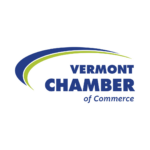Solutions for Recruiting and Retaining Workers
The Vermont Chamber continues to focus on the workforce crisis. While there is no easy fix, there are a variety of new or expanded tools being offered by Vermont for training, housing, and childcare that are available for employers to use or workforce recruitment and retention tools.
Recruitment
- Military Retiree Pension Tax Exemption: Recruit retired military veterans with Vermont’s new partial exemption of retired military pensions which will exempt the first $10,000 of military retirement pay from state personal income tax.
- Social Security Tax Exemption: Recruit workers into the workforce who are currently taking Social Security with Vermont’s increased personal income tax exemption for Social Security beneficiaries.
- Recent College Graduate Forgivable Loans: Entice students at Vermont higher education institutions to become employees through forgivable loans available to students committing to work in Vermont for two years after graduation through the Green Mountain Job and Retention Program.
- New Americans: Access to support services is available through a program aimed at retention of recent arrivals. More information on the program is available through the State Refugee Office for the Employment Assistance Grant Program.
Training
- Offer training opportunities to fill positions and promote high potential workers with incentives including grants like the 802 Opportunity Grant and the Short-Term Training Advancement Grant.
- Vermont Trades Scholarship Program: Secure high-demand trade sector employees by promoting the Vermont Trades Scholarship Program which provides initial licensing fees, exam fees, and tuition payments for certification and degree programs to applicants and employees.
Housing Costs
- First-Generation Homebuyer Tax Credit: Retain employees struggling with buying a home by sharing the new first-generation homebuyer tax credit program with them. This program will be administered by the Vermont Housing Finance Agency.
- Home Heating Incentives: Help employees receive financial assistance to switch to lower-cost, energy-efficient residential heating sources. Some products and services are free to income-qualified households.
Childcare Costs
- Childcare Financial Assistance Program: Promote Vermont’s expanded childcare subsidies available to a wide range of income levels to reduce out-of-pocket childcare costs.
- Child Tax Credit: Vermont’s child tax credit for individuals and families with children under five will reduce the financial burden of childcare costs for employees through a refundable tax credit. This State benefit is a great way to recruit out-of-state employees with childcare needs.
SHARE THIS ARTICLE
RECENT NEWS
Vermont Chamber Announces New Board Members and Leadership
September 30, 2025
Job Opportunity: Director of Membership Engagement
September 29, 2025











